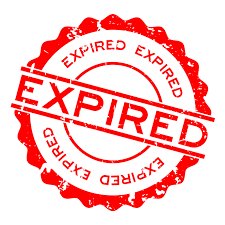EXPIRED COPYRIGHTS AND UNCLAIMED COPYRIGHTS
A copyright enables a creator to protect their literary, artistic or dramatic worl from use and commercial exploitation by any other third parties.

A copyright enables a creator to protect their literary, artistic or dramatic worl from use and commercial exploitation by any other third parties. However, there are some circumstances under which the copyright attached to a creation can be expired. People and businesses may legally and lawfully use material that are ordinarily be protected by copyright. It is important to note that Copyright is not an indefinite right. The duration of the copyright depends on where the creator registered the copyright. In India, the case of original literary, dramatic, musical and artistic works, the duration of copyright is the lifetime of the author or creator, and till 60 years counted from the year following the death of the author. In the case of cinematograph films, sound recordings, photographs, posthumous publications, anonymous and pseudonymous publications, works of government and works of international organizations are protected for a period of 60 years which is counted from the year following the date of publication.
In the United States, copyright exists for the entire life of the creator plus 70 years. In the case of corporate authorship, a work created by an employee as part of his job -- the term of protection is 120 years. These time limits are set by statute and can be increased or decreased by a change in the law. Below shows the expiration years in different countries.
Expired Copyright
When the copyright relating to a creation has expired, the rights and ownership of the creation passes into the public domain. This means that if a person or business had established that a certain creation and it has been in existence for more than 60 years since the death of the author, the individual or company may freely use the creation without fear of litigation. This also includes the rights to commercially exploit the formerly copyrighted work. Therefore, Most movies made as early as the 1930s and 1940s have mostly lost the protection that their copyright provided them. They have entered public domain and can be used without asking for any permission by anyone. However with increasing number of revenue that can be extracted from movie screening, big media houses and the producers in the Bollywood industry like Yash Copra have already seeking extension from the HRD Ministry to extend the copyright period to around 95 years. They followed the example of the ‘Mickey Mouse Act’ and the protection offered to motion pictures in the United States. They have also demanded that producer’s be given the benefit of such extension, since they usually take up the risk of the entire process of movie-making.
Unclaimed Copyright
If a person or a business has a reason to believe that a copyright is unclaimed, then it becomes irrelevant if she violates a living copyright. If any content or creation has not been protected from any copyright by its original owner, then it is said to be unclaimed. Any countries that are signatories and have ratified the Berne Convention, including the United States, India etc. the copyright arises automatically whenever a work or content is created. Nothing needs to be claimed through an official registration. A person or business using copyrighted material that has not been registered or marked with the copyright symbol may still be subject to a lawsuit for copyright infringement. Below shows the countries that are signatories to the Berne Convention and does not require a legal registration to protect their copyright content.
If someone is or wants to use a creation that is probably or they believe is to be copyrighted, the individual or business should take all reasonable and necessary steps in finding who the creator of the work is and when it was created. This could be used as a defense when and if a the creator subsequently appear and claim infringement. Another thing which can be done would be to claim that the use of the copyrighted material was protected by certain exceptions of fair use and fair dealing. These defences which in certain circumstances permit the use of copyrighted materials without seeking the creator's permission.
RAKSHA SINGHAL












